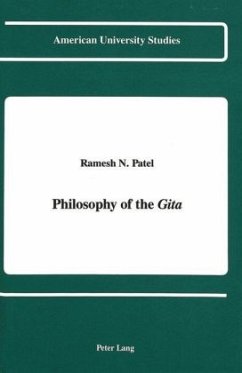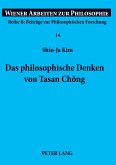This strikingly fresh study of the Bhagavad-gita approaches the Sanskrit classic as a coherent philosophical text. It argues that the well-worn approaches regarding the Gita as religious scripture or literary work are methodologically inadequate and excessively speculative. The book presents and applies a new hermeneutic called archaic coherentism, uncovering a rich synoptic conceptual structure which affords novel insights into the philosophy of action and metaphysical theory. A new translation aiming at conceptual accuracy follows the essays, which deal with war and morality, identity and action, and the humanity of Hinduism. Careful exegesis brings to light textual subtleties that enhance the value of the Gita's philosophy for application to contemporary issues.
"A significantly original perspective on India's most famous and influential classic scripture. It challenges traditional interpretations with penetrating questions. Patel pursues his work with single-minded persistence, and the result is excellence." (Archie J. Bahm, Author of 'Bhagavad-Gita: The Wisdom of Krishna')
"Patel's book is worth reading by philosophers interested in western and eastern philosophy alike; it will help dispel the myth that Hindu philosophy is uniformly idealistic or theistic or 'world-renouncing' and the myth that the method of Hindu philosophy is fundamentally disanalogous to the method of western science." (Quentin Smith, International Philosphical Quarterly)
"This may be a watershed work. This new, archaic view deserves examination." (Al Denman, The Antioch Review)
"This book will be of interest to students of philosophy of religion and ethics who are looking for innovative examples of non-Western exegesis." (Guy L. Beck, Religious Studies Review)
"Sometimes, when one is beginning to wonder wether anything new and significant can be said on an overworked topic, a book appears to restore one's faith that scholarly vision is forever capable of penetrating to a further horizon, of discerning finer nuances and of discovering a new vein, just when one thought that all the ore had been minde. This is such a book." (Arvind Sharma, Philosophy East & West)
"Patel's book is worth reading by philosophers interested in western and eastern philosophy alike; it will help dispel the myth that Hindu philosophy is uniformly idealistic or theistic or 'world-renouncing' and the myth that the method of Hindu philosophy is fundamentally disanalogous to the method of western science." (Quentin Smith, International Philosphical Quarterly)
"This may be a watershed work. This new, archaic view deserves examination." (Al Denman, The Antioch Review)
"This book will be of interest to students of philosophy of religion and ethics who are looking for innovative examples of non-Western exegesis." (Guy L. Beck, Religious Studies Review)
"Sometimes, when one is beginning to wonder wether anything new and significant can be said on an overworked topic, a book appears to restore one's faith that scholarly vision is forever capable of penetrating to a further horizon, of discerning finer nuances and of discovering a new vein, just when one thought that all the ore had been minde. This is such a book." (Arvind Sharma, Philosophy East & West)








